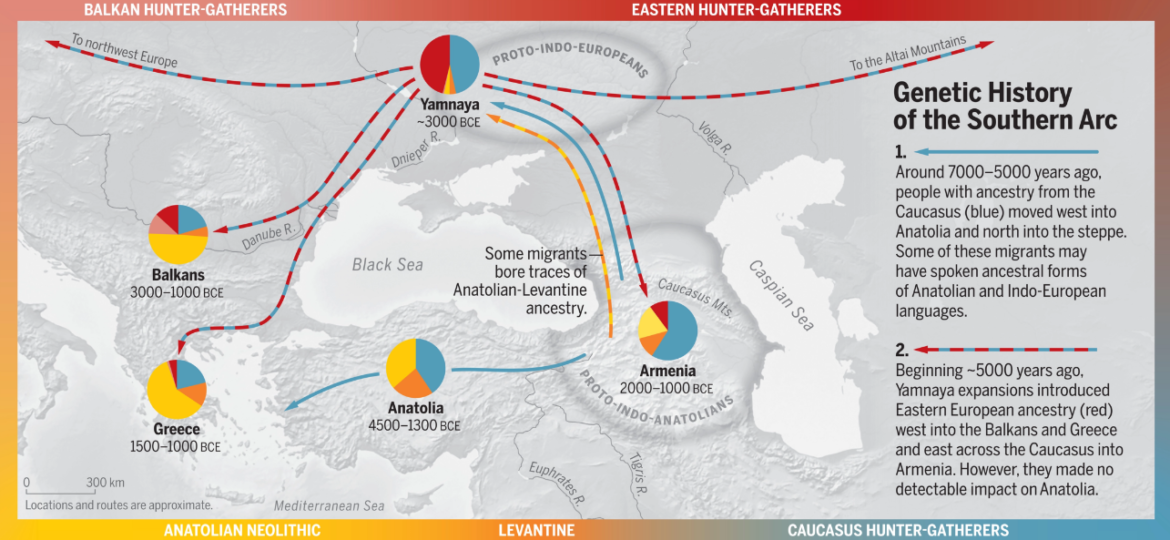An international team of more than 200 scientists, including Prof. Arkadiusz Soltysiak from the Department of Archaeology at the University of Warsaw (UW), led by Prof. Ron Pinhasi, Prof. Songül Alpaslan-Roodenberg from the University of Vienna with Dr Iosif Lazaridis and Prof. David Reich from Harvard University, has conducted a study of the genomes of individuals of early civilisations living in the “Southern Arc” region, a geographical area connecting Asia and Europe.
The researchers collected 727 genomes of various individuals of early civilisations from the “Southern Arc” – a geographical region stretching from the Caucasus and the Levant (the area of Syria, Palestine, Jordan, Lebanon) through Anatolia (a historical land located in present-day Turkey) and the Aegean Sea, to the Balkans.
The researchers emphasise that the civilisations that once inhabited the “Southern Arc” are not only the ancestors of the modern inhabitants of the region but have also influenced the entire history of mankind. Knowledge of their migrations and languages is still incomplete. Archaeogenetic research can shed new light on the way of life of these communities and on the spread and diversity of their languages.
‘The combination of palaeogenetic and archaeological data is becoming an increasingly sophisticated tool in the study of ancient human communities,’ says Prof. Arkadiusz Sołtysiak of the UW Department of Archaeology.
The collected data was used to test various hypotheses about the cultural and social development of populations in the region from the beginnings of agriculture to the late Middle Ages.
The results of the research are presented in three articles, which were published in the journal Science, describing the origins and spread of Indo-European languages, the first agricultural communities and their interactions, and the preserved genetic distinctiveness in the Eastern Mediterranean despite the marked migration of peoples between the Bronze Age and Late Antiquity.
Adrian Andrzejewski





